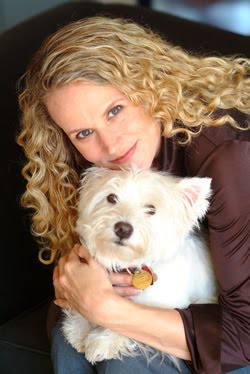
Woof! Arf! Yap, yap!
Your dog would like to give YOU thanks for being you. On behalf of Sophie and Charlie and Max and Fluffy, I'd like to thank you for being a GREAT dog person! You're reading a Dog Blog right now! See how great you are?
You give your dog the best quality food and the most motivating treats. You give her mental stimulation through food toys and games and obedience work. You take her on the kinds of walks she enjoys most, visiting new places if she likes them, avoiding your cell phone so you can focus on her. You take classes and try new doggie activities. You hire the most attentive dog walker. You have a pet-sitter move into your home when you have to go out of town because Sammy prefers staying home to living in a strange kennel.
Gunther gets to go on vacations with you sometimes! Twice a month he hikes a nearby trail. He goes to lunch with you at your local bistro. He has the best of everything: two dog beds, two dozen toys, a frozen marrow bone once a week, regular vet visits (with lots of accompanying treats!), and doggie friends he loves. He plays fetch with you, has a doggie seat belt in the back seat of the car, and has a blanket to crawl under on the sofa.
He's very grateful for all you do for him. It should be "a dog's life" we all want--especially because we don't have our furry friends forever no matter how much we 'd like to. They cherish every moment with you and know you never take them for granted either.
Thank you very much to the best dog family ever! You're the greatest!
Woof!


